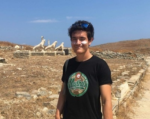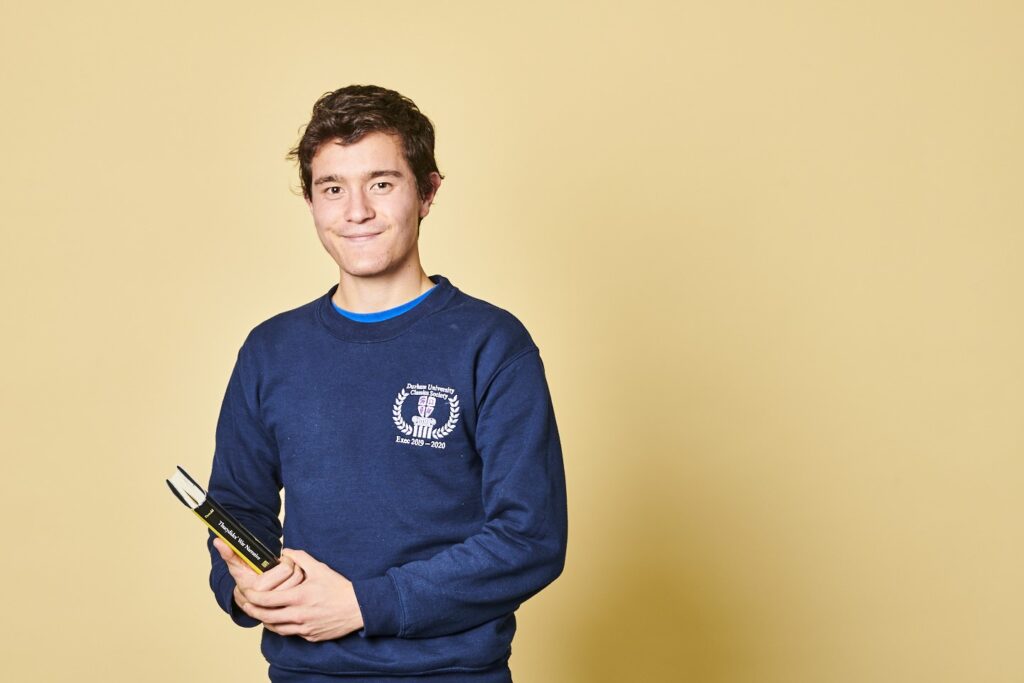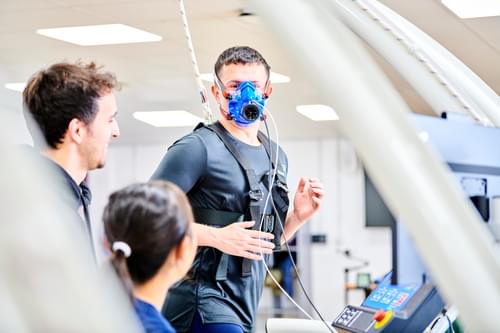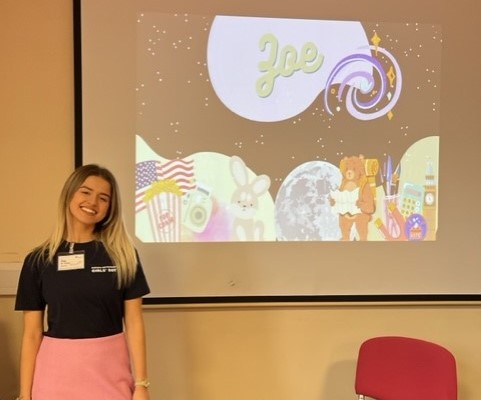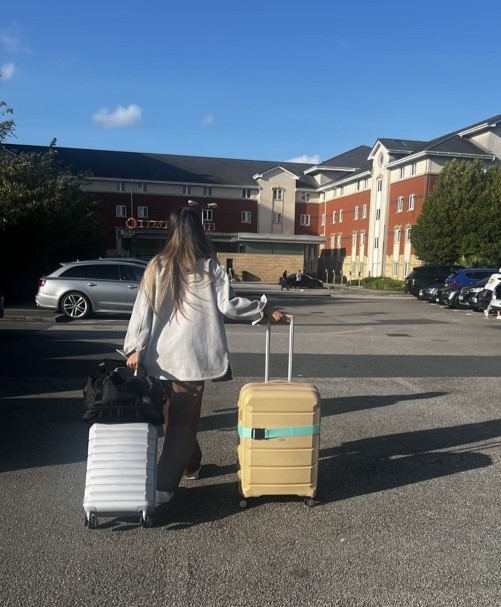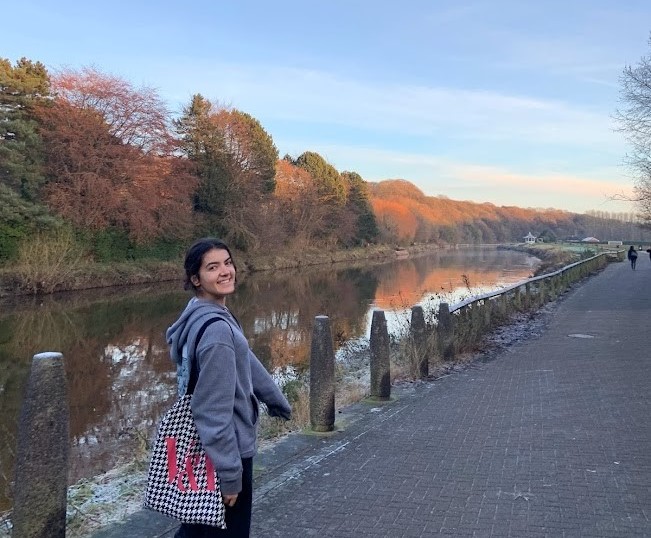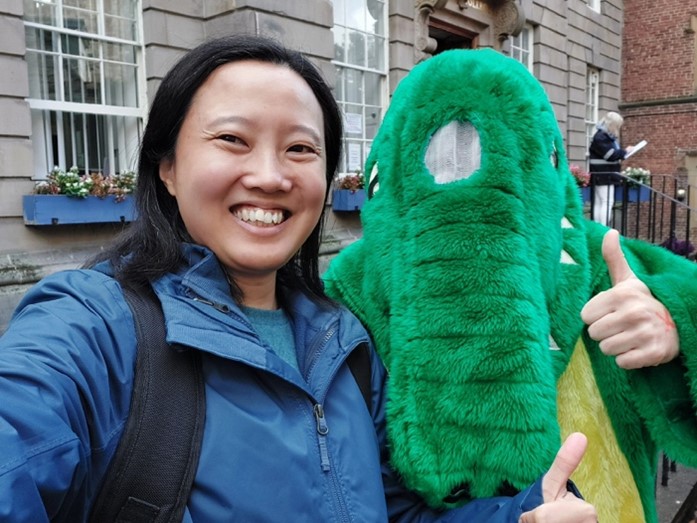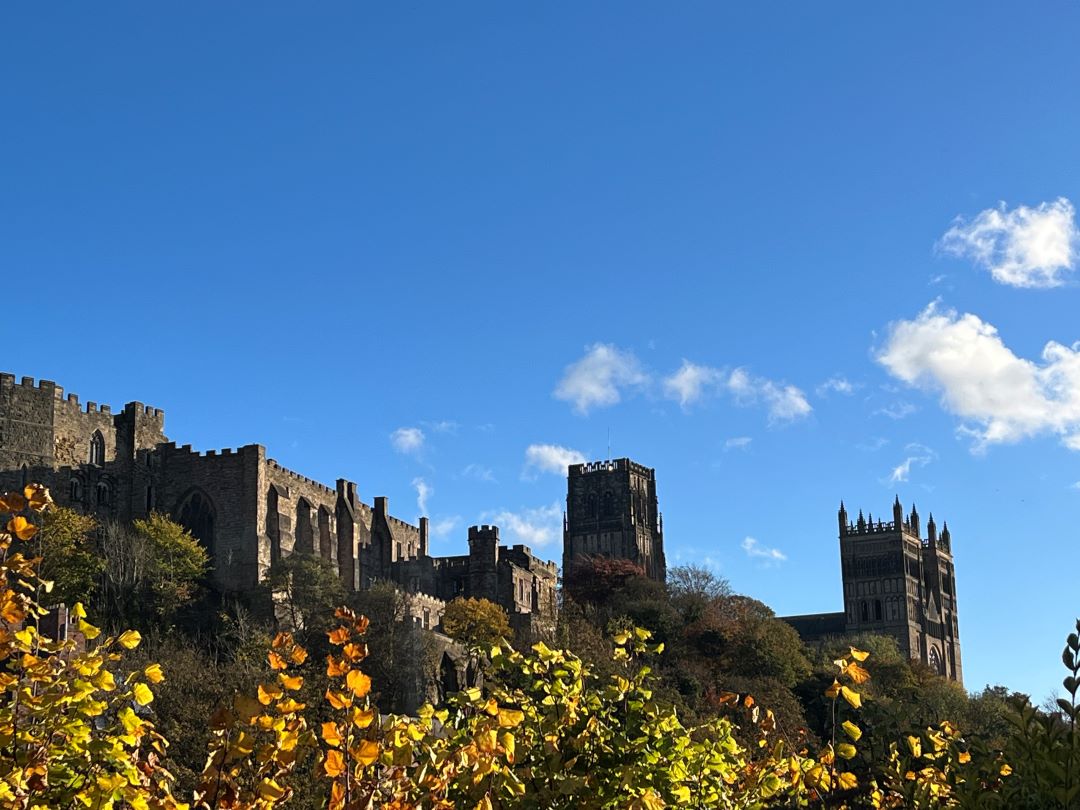A note is necessary before we start – I absolutely love studying and am an unashamed workaholic (we love a bit of nerdiness). This little snapshot into my day to day life may seem, but is not meant to be, daunting. What should be taken from this, is just how much you can do here at Durham Classics and Durham as a whole. Apart from the great lectures, academic excellence, and friends you make here, it’s the diversity of activities, the “muchness”, and the encouraging atmosphere that makes Durham so special to me – and enables me to do everything I do!
So what does my daily life look like? It’s a bit of a challenging question, as I am a particular case: as a third (and final) year Classicist, even though I only have four classes (alongside the dissertation), all of them fall onto a Friday (the “mass exodus” day) – totalling to a full 6 (sometimes 7) hours of lectures and seminars! This distribution, however, means that I have most of the other days free to prepare and engage in fun extracurriculars. In this blog, I’ll detail a typical Friday.

My first seminar for Higher Greek 3B (prose) starts at 9am in the heart of the Department, the Ritson Room. Here, we’ve been translating and discussing Plutarch’s Life of Alexander, complementing it with some Greek inscriptions. What’s really wonderful is that one of our lecturers specialise in epigraphy, and both in historiography, so we get cutting-edge insights into the texts. At 10am, I move up to lyric, and the Seminar Room, for Greek 3A where we’re translating the choral sections of Sophocles’ Trachiniae, Euripides’ Medea, and Pindar’s Odes. Again, it’s great that our lecturer, Dr Jackson, has just published a book on the choral sections in 4th century drama! What’s more, in Greek B, we only have 7 students, which really helps to facilitate discussion and foster a sense of belonging.
Time for a break? No way. From 11-12, I usually have seminars for Greeks & Persians. Seminars consist of smaller classes that are more productive spaces for an in-depth discussion on a particular area. They’re great opportunities to bounce ideas off fellow peers and get valuable insights for essays: we work great as a group. At noon, I have a three-hour break, although this is often filled up with meetings for my Dissertation. Somewhere in this time, I’ll grab a quick lunch at our beloved Greggs (when in the North, Greggs is the way to go!) near the Market Place, or go to Castle a few steps away and have lunch with a friend in the Great Hall. Then, I’ll return to our lovely library in the Classics Department where I’ll work and chat with some friends. On the topic of the library – we’re really lucky to have our library, since it is an invaluable resource to supplement books often checked out of the main library and a convenient place to work for a few hours between lectures. Apart from friendly people being there, it’s also a chance to engage in my first extracurricular: help as a library volunteer cataloging the books!

Finally, I have two lectures in Elvet Riverside between 3-5pm to finish off the day: Greeks and Persians lecture, and then a seminar for Advanced Latin C, where we’re translating Caesar’s Bellum Civile and Lucan’s Pharsalia. It’s a long day, but boy is every class rewarding.
But the party never ends. Alongside these four modules, as I’m a third-year, I am also completing my Dissertation. This is one of my favourite aspects of my degree, because I can engage at a deep level on a topic that I really enjoy (in my case, approaching Thucydides through the lens of collective memory). I have about two/three hours of contact with my supervisor each term to discuss my progress. It makes you feel grown up and is a nice taste into the real academic world – the experience is really rewarding.

Finally (but not quite the end!), being the enthusiast I am, I also attend extra courses that the Department offers to enrich my learning with lecturers at the forefront of their field. First, I audit two Classics modules, meaning that I attend lectures but do not complete assignments: Writing Alexander, and Ancient Greek Comedy and Tragedy. They nicely complement the other modules that I take, which makes them really valuable. In the evenings, I also attend our very fun Reading Groups: for the Homeric Reading Group on Tuesdays 6-7, we’ve been translating and discussing Od. 21-23 with our Homerist Dr Gazis. In the Latin Reading Group, we’re reading Statius’ Achilleid – what’s great about this is that a brilliant PhD student leads it. It’s a great environment to learn in – and try something new out. Who knew that studying the pinpoint-precise mechanics of death could reveal so much about character and us today!

And it’s this focus on today that leads me to my final, and favourite, extracurricular work with the student-run Classics Society. Although I have volunteered as an ambassador of the World Heritage site and work as my year’s Course Rep, one of the reasons I really enjoy engaging with the Classics Society is that it focuses on making Classics accessible to today and more relevant than its often perceived status as an ivory-tower subject. Much of this is achieved by creating opportunities for everyone. We have some great academic events like Academic Talks by Durham’s lecturers on their research and once a term by speakers from other universities (Cambridge & Glasgow recently). We also have more interactive workshops by PhD students; recently, we had a fascinating discussion with our PhD on Queer Identities in Ovid.
On the social side, apart from film nights and bar crawls, we have our famous Saturnalia Ball each Christmas in the Cathedral’s crypts. We also run our beloved online blog, Ostraka, where you can write on anything related to Classics (and is a great boost for careers in journalism). Just this year, I spearheaded a new event: the Society Trips, where we visit sites from Hadrian’s Wall to the Troy Exhibition at the British Museum. The variety of the latter perhaps best captures the Classics Soc’s spirit: a mix of an academic walk through the exhibition with lecturers and a chance to talk to the curators, to a lovely dinner to top it all off!
And that’s what makes Durham so special. Everyone’s here for you, and we all try our best to make everyone’s time great. It’s the chance to do so much, to find your full potential and enjoy it. For me, apart from the odd knocking on a lecturer’s office door during their office hours to ask some unnecessary nerdy questions or for them to sign their book for me, that’s what will last for me – the excitement of something always waiting around the corner.
More information
James is one of many students who feature in our new prospectus, download yours here
Follow our students on Instagram and YouTube
